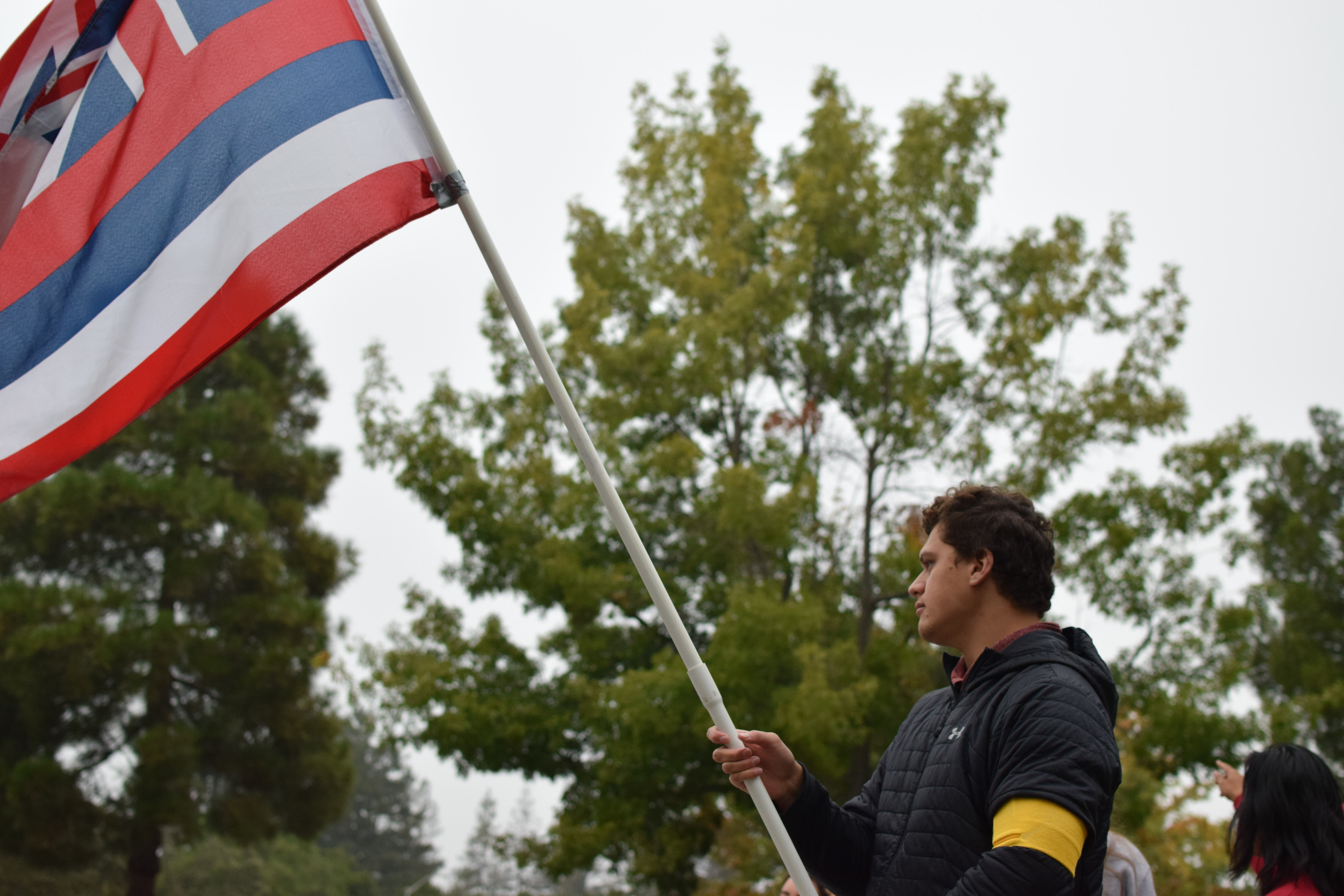Members of Hui O Na Moku, Stanford’s Pacific Islander club, as well as the Bay Area Native Hawaiians and allies blockaded cars from entering the Gordon and Betty Moore Foundation in Palo Alto from 6 a.m. to 12 p.m. on Tuesday. The groups were protesting the Moore Foundation’s funding of the Thirty Meter Telescope (TMT), which was set to begin construction July 15 on Mauna Kea, a mountain sacred to Kanaka Maoli, or Native Hawaiians.
The demonstrators held ceremonies, performing Native Hawaiian songs and chants that honored ancestors and indigenous land, including “Ku Kiai Mauna,” or “protect the mountain,” and “Aloha aina” — “love the land.” Organizers emphasized the importance of kapu aloha, which Hui O Na Moku co-president Keoni Rodriguez ’21 described as a way to conduct themselves with love, compassion and gratitude.
“Mauna Kea is the absolute center of who we are as a people,” said Keoni Rodriguez ’21, co-president of Hui O Na Moku and demonstration organizer. “It is what our culture revolves around. It is also an aquifer that nourishes and provides life to the people on the island.”
Hui O Na Moku hoped the demonstration would open a dialogue with the Moore Foundation, which committed $200 million to the California Institute of Technology and the University of California system toward the development of the telescope, which will “enable discoveries that we cannot even begin to anticipate today,” wrote Gordon Squires, TMT Vice President of External Affairs, in a statement to The Daily.
The foundation, which funds fellowships and research at Stanford, selected Mauna Kea as the site for the telescope after a “rigorous five-year campaign spanning the entire globe that measured virtually every atmospheric feature that might affect the performance of the telescope,” Squires wrote.
Squires added that TMT has met with community members and native Hawaiian cultural practitioners over the years, and has contributed more than $5.5 million to the “THINK” fund, which provides scholarships and funds for nonprofit organizations on Hawaii Island.
But for the protestors, it’s not enough. In the past months, Hui O Na Moku has sent a petition with over 2,000 signatures to the Moore Foundation asking them to their withdraw support of the telescope — but they have yet to receive a response, co-presidents Rodriguez and Ma’ili Yee ’20 said.
“Our goal is to have the Gordon and Betty Moore Foundation meet with us and leaders of Mauna,” Yee said. “This is also a chance for our university to better support indigenous students here. For example, Stanford could speak out against the telescope because it is affecting the physical, mental, spiritual and emotional health of their students.”
Governor of Hawaii David Ige announced the beginning of construction of the telescope on July 15. Since then, a line of kapuna, Native Hawaiian elders, have camped at the base of the mountain, blocking construction vehicles. Since July, thousands of Hawaiians have joined the daily protests, along with Native Hawaiians living in the Bay Area.
“The Moore Foundation is known for their philanthropic philosophies and values. We are here to let them know that what’s happening in Hawaii is the threat and imposition of state-sanctioned police violence in their name,” said Dr. Kamala O Ka ‘Aina Niheu, a Native Hawaiian, lead of the Mauna Medic Healers Hui and co-founder of the Standing Rock and Medic Healers Council.
For Stanford students that are part of the Native Hawaiian community, the protests on Mauna Kea are personal.
“Seeing our native lands being taken control of, I see myself as a spokesperson for my people back home,” said Mahie Wilhem ’22, an organizer of the demonstration. “Our home needs us. We’re hurting. Our elders and our land back home are suffering, and it’s a heavy burden to bear.”
A previous version of this article referred to TMT Vice President of External Affairs Gordon Squire as Gordon Squire. The Daily regrets this error.
Contact Patricia Wei at patwei ‘at’ stanford.edu and Leily Rezvani at lrezvani ‘at’ stanford.edu.
